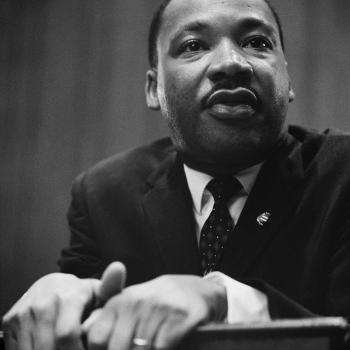You were defeated in your race for reelection in 2006. You probably didn't envision a six-year exile from elected office. What has it taught you?
I actually did envision what happened in 2006. Some people come to Washington with strong feelings about what made this country great and successful, and a strong desire to see those things reflected in the laws of our country. I call those people conviction politicians. I was not trying to be a successful politician who gets reelected by following the direction in which the wind is blowing. I was trying to move public discourse.
In a state like Pennsylvania, which is centrist at best, perhaps center-left, a person with my convictions is going to have trouble when the wind blows the wrong way. That's a given. I was prepared for that.
In the providence of God, however, do you feel that the loss and the six-year interim have changed you for the better?
Losing isn't the worst thing that could happen to you. You learn to appreciate the opportunities you have. You never know how long your life will be, or how long you'll have the opportunity to make a difference. So you try to take advantage of those opportunities, do your best with them, and have no regrets.
For the most part, I can say that that's been the case. I have no regrets from the standpoint of the public policy I advocated for. I certainly have regrets for some of the things that happened, and some of the things I've said and done. But overall my sense is that losing and being out and looking at the world differently can be a very good thing for your life and for your family. For me, it was a very good thing to be able to be outside of Washington during this critical time and see it from the standpoint of how the average American sees it, as opposed to someone inside who is playing the game.
You're not only a politician but also a student of political history. Progressive Christians like Jim Wallis often allege that their conservative brethren only care about abortion, homosexuality and perhaps pornography. Is that an accurate characterization of the Religious Right that you knew, or was there also a broader view of social transformation?
It's not that conservative Christians don't care about those other things. It's that they don't see the government as the operational force behind them. That's a very important distinction.
If you look at conservative Christians in Congress, many of them give financially or volunteer support for a lot of things that help their fellow men and their communities. You don't necessarily find that on the other side of the aisle. They tend not to be charitable givers, volunteers, or to be involved in community organizations.
This is a reflection of how we understand the Lord's call for us to take care of those who are in need in our society. Conservative Christians generally believe that responsibility should not be farmed out to the government. It has to be personal. It's best for those in need, and for those providing for those in need, when people take personal responsibility. It's not: "I pay my taxes and therefore I don't have to care for my brother." It's: "I pay less taxes so I can have the opportunity, and fulfill the obligation, to better care for my brother." So I find it unfair to claim that there is no genuine concern amongst conservative Christians just because they're not advocating for increased government roles in caring for the least among us. That's a false measure.
If there is a legitimate criticism of Christian conservatives on this score, it's that, because of the mindset I described, they choose not to get involved in improving the delivery system the government has in place. The attitude can be, "Let's just get rid of it." But there are things we cannot get rid of right away, perhaps ever. So, isn't it better to engage in the discussion on how we can change those systems to work better, and work in a manner more consistent with the overall theme of having government do less and people do more?
That's why I was actively involved in the debate over the Welfare Reform Act. Some conservative Christian groups—but only very few—were actively involved. Most stood on the outside and opposed it, rather than getting involved, getting into the weeds.
The Tea Party movement has been accused of everything from racism to bigotry, and some pointed to the Restoring Honor rally and said the Tea Party reflected a new religious zealotry. Are conservative Christians hyper-politicized?
Oh, I wish they were! No, if anything, I think conservative Christians have been hypo-politicized. Hopefully, what we're seeing here is just an awakening of conservative Christians to participate in politics as much as the rest of society does.
There's something endemic in the orthodox Christian believing mindset that suggests we should just pray and ask God to handle our social problems—a tendency not to take responsibility for faith and works as opposed to pure faith alone. A lot of Christians tend to burrow in and pretend they have no role to play or no responsibility to participate. I think that's an inaccurate interpretation of the gospel. We are seeing people wake up and realize that, yes, you should continue to pray, but we also live in the world not yet in the kingdom. God has a role for you to play in this world as well as the next.





